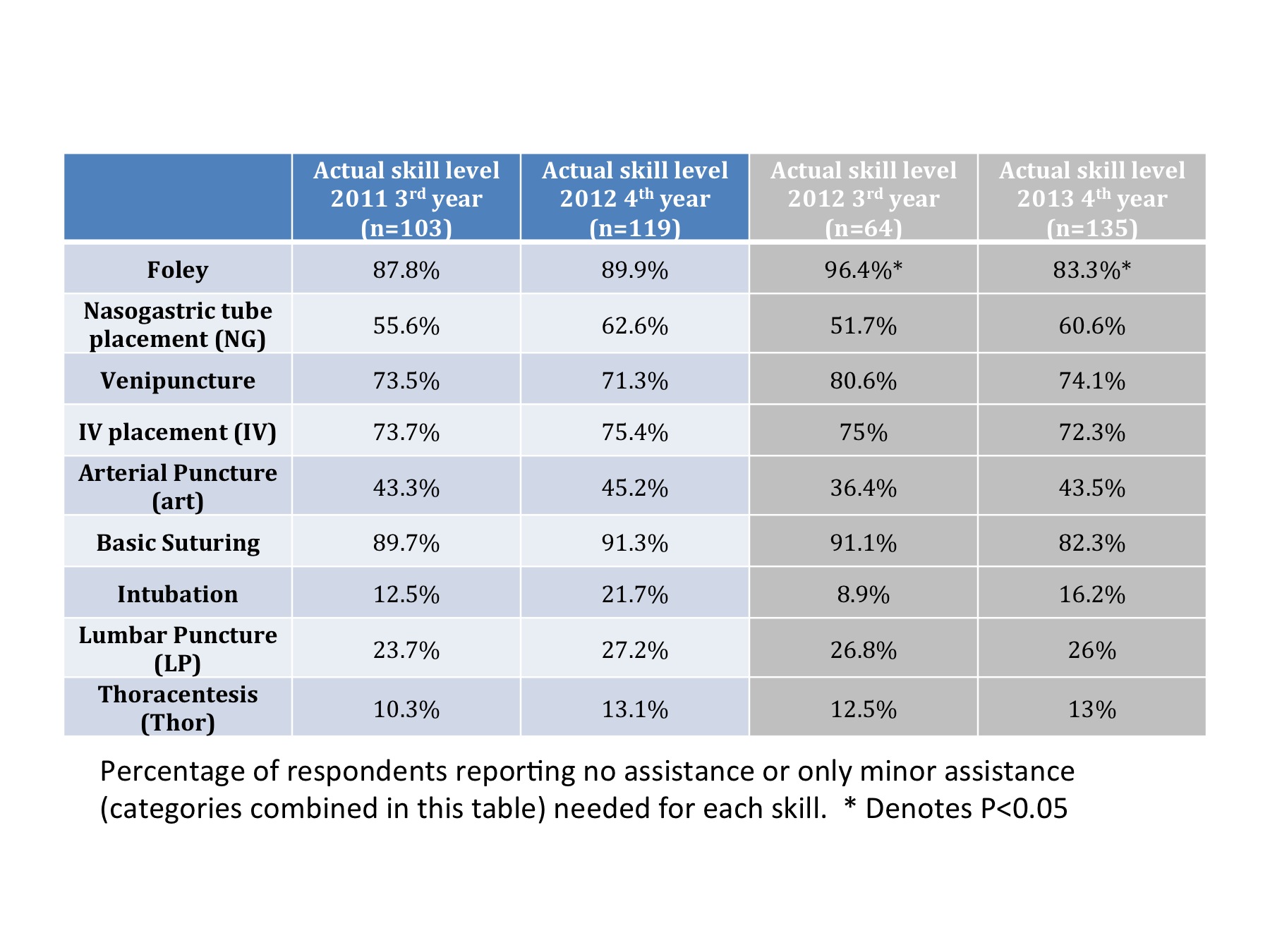C. M. Becker1, M. O. Meyers1 1University Of North Carolina At Chapel Hill,Surgery,Chapel Hill, NC, USA
Introduction: Acquisition of procedural skills during medical school continues to evolve as . In this study, we sought to examine the impact of the 4th year of medical school on actual and desired procedural competence among medical students at a single US institution over a three year period.
Methods: Under IRB approval, we conducted a survey of 3rd and 4th year students over a three-year period. Students were surveyed at completion of 3rd year and again at graduation. Experience (number of procedures performed), actual and desired levels of competence were measured for nine procedural skills (Table) using a 4-point Likert scale (1=unable to perform; 2= major assistance; 3= minor assistance; 4=independent). Data was analyzed comparing responses from students at completion of 3rd year to those from the same group of students at graduation. Data were compared by Fisher’s exact test.
Results: A greater level of desired competence than actual competence was seen in both 3rd and 4th year for all skills (p<0.001). For no skill was there a greater level of actual or desired competence by 4th year students compared to 3rd year students. 4th year students in 2012 reported a greater number of procedures performed for every skill assessed as compared to 2011 3rd year students (p<0.001 for all); 2013 4th years reported greater numbers only for NG(p=0.01), intubation(p,0.001), IV(p<0.001), Art(p<0.001), LP(p<0.001) and Thor(p=0.04). Actual skill level is reported in the table. 2011 3rd year students desired greater competence than their graduating counterparts for Foley(p=0.01), NG(p=0.003), venipuncture(p=0.006), IV(p=0.002), Art p=0.0005) and LP(p=0.003). In 2012 this was true only for IV(p=0.03).
Conclusion: No difference in competence was seen between 3rd and 4th year students, despite having greater experience at the end of 4th year. Interestingly, 3rd year students were more likely to desire a higher level of independence with procedures than their 4th year counterparts. Both groups desire a greater level of competence than they achieve.
